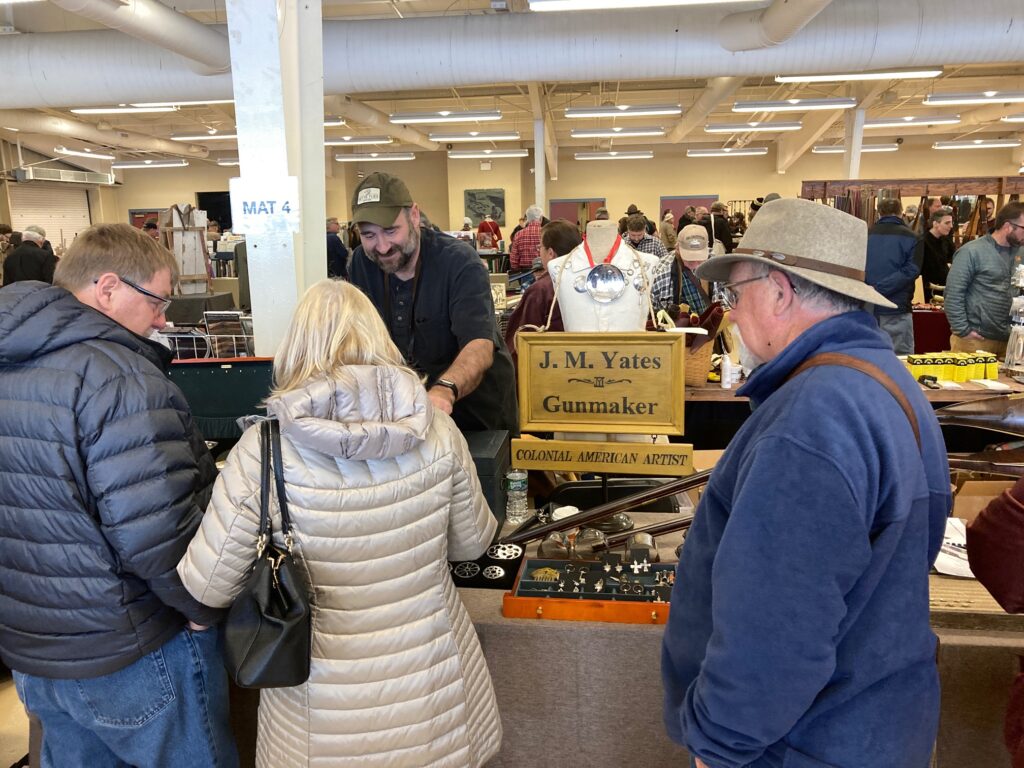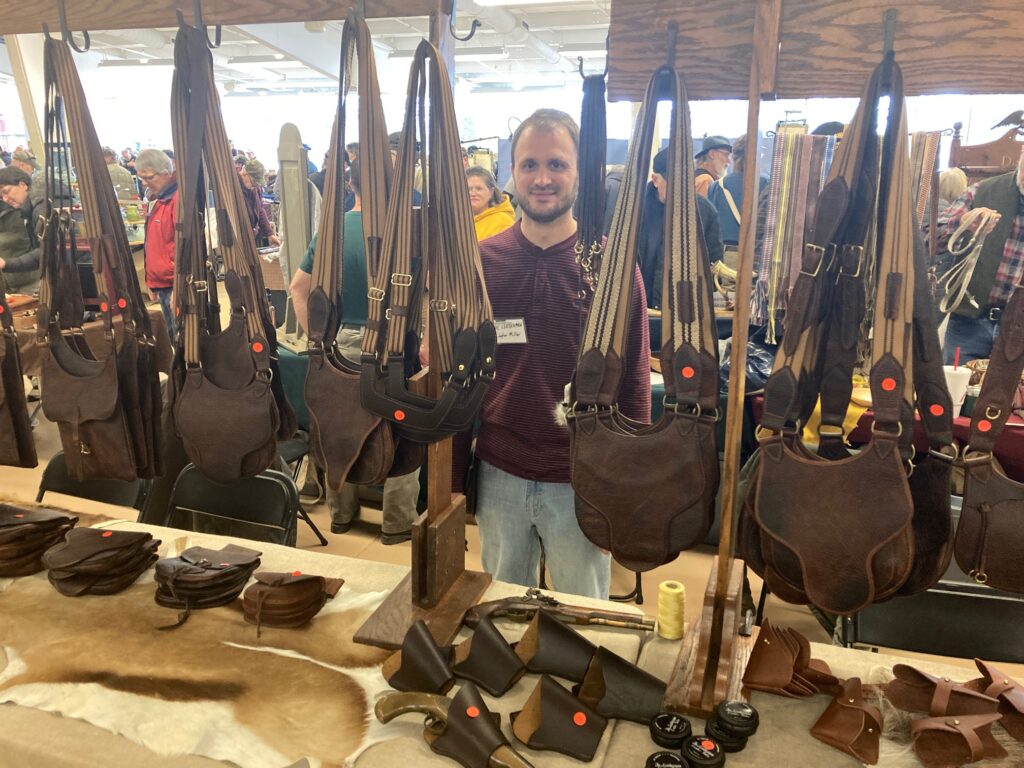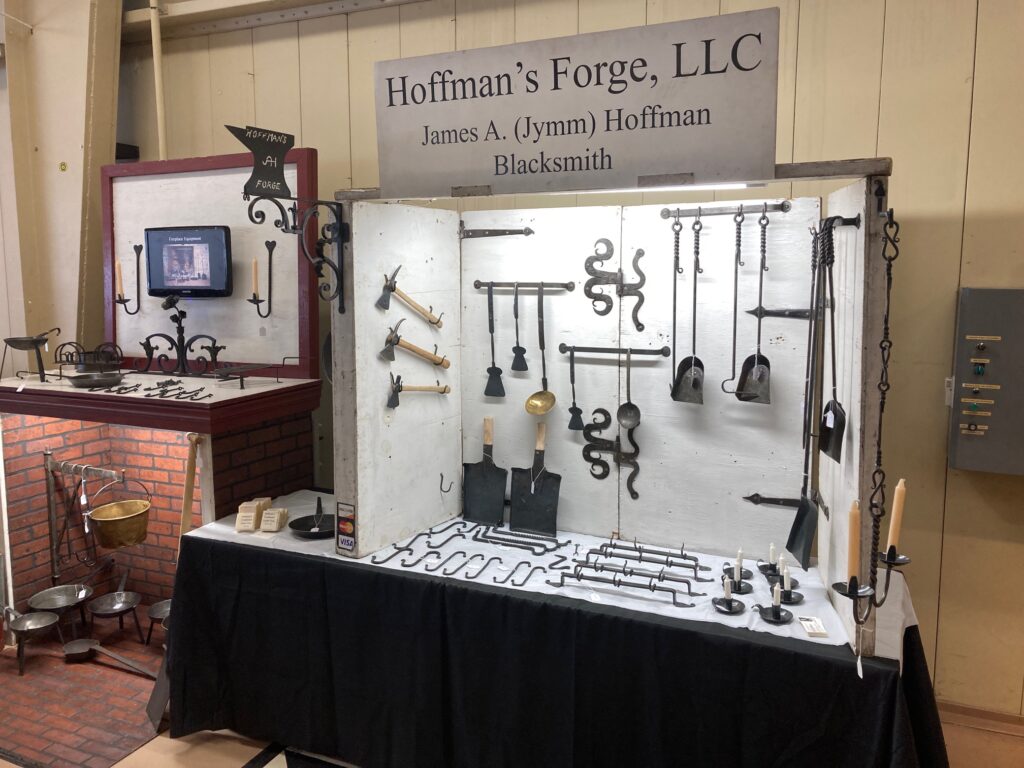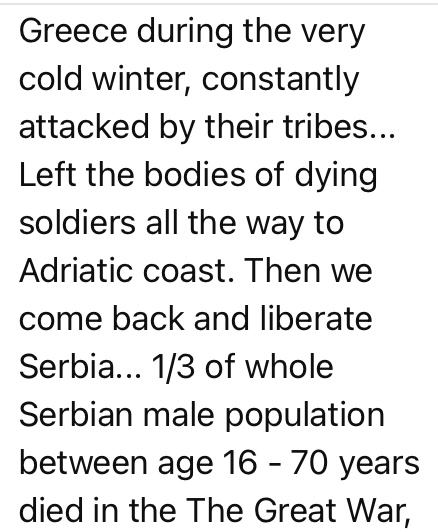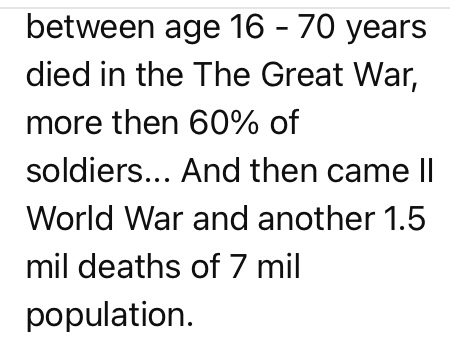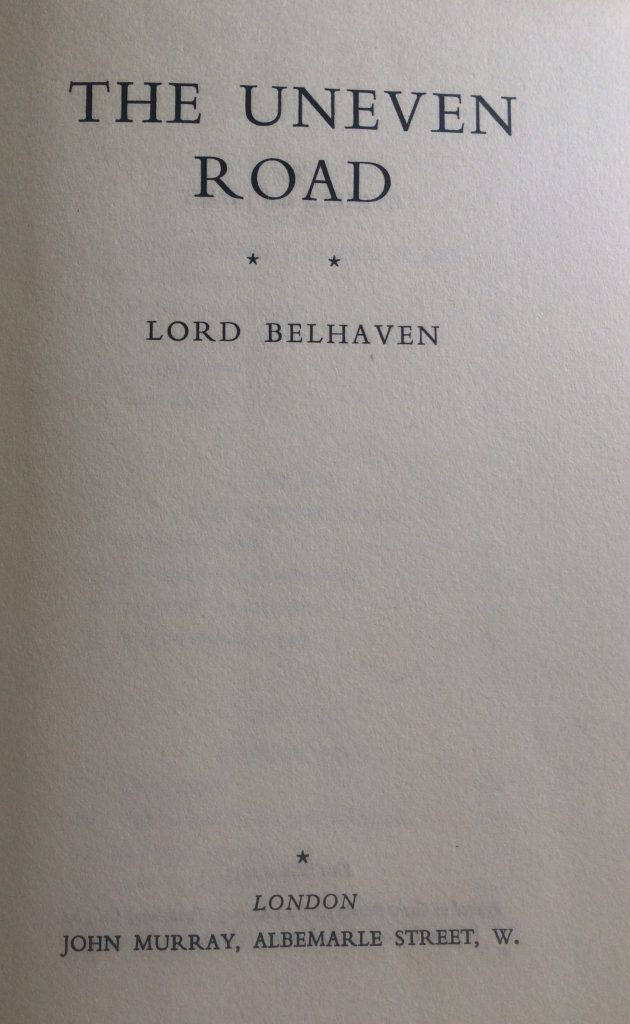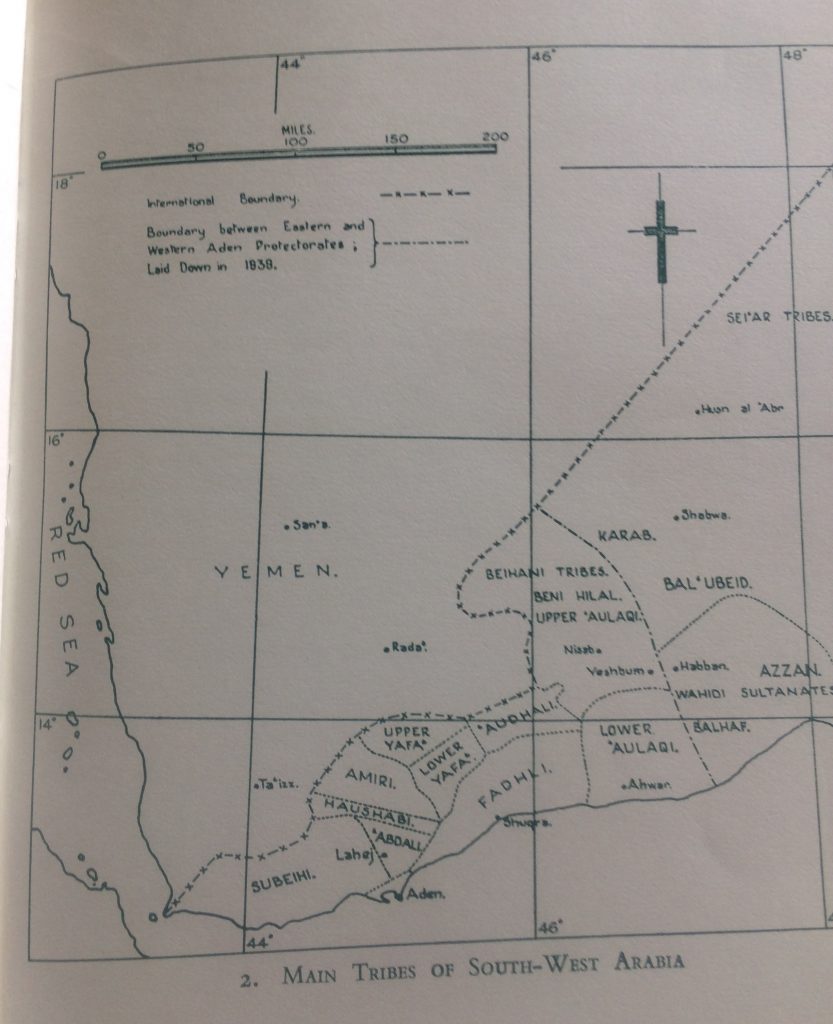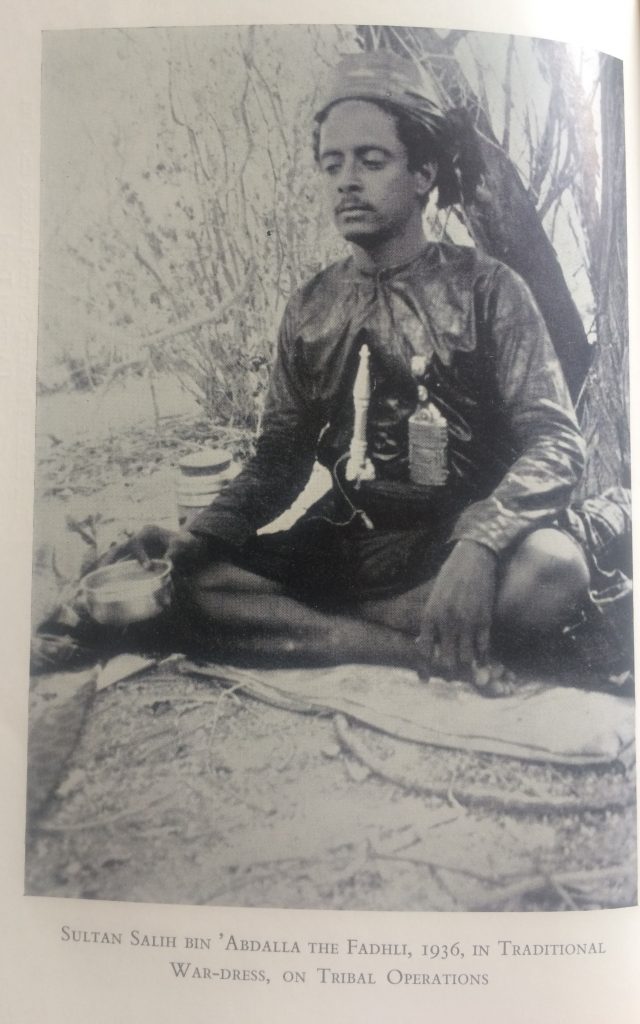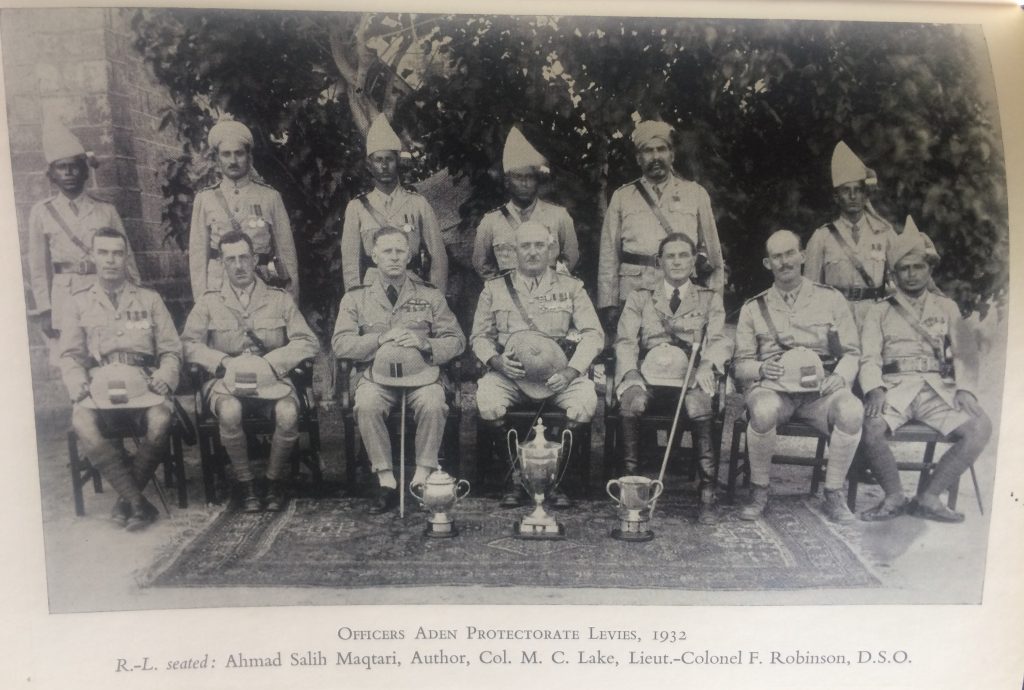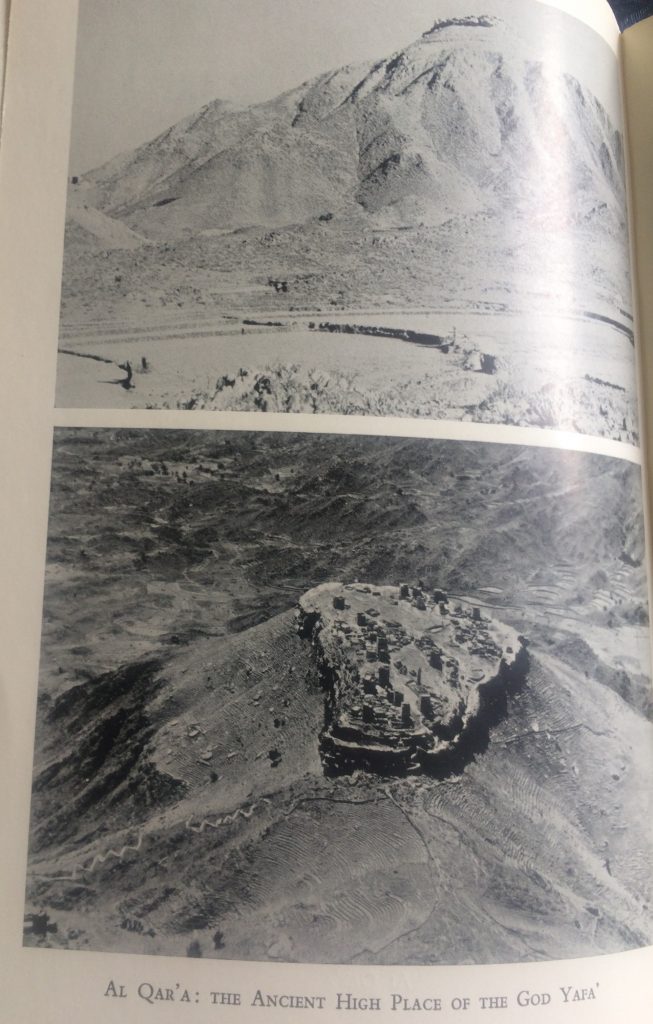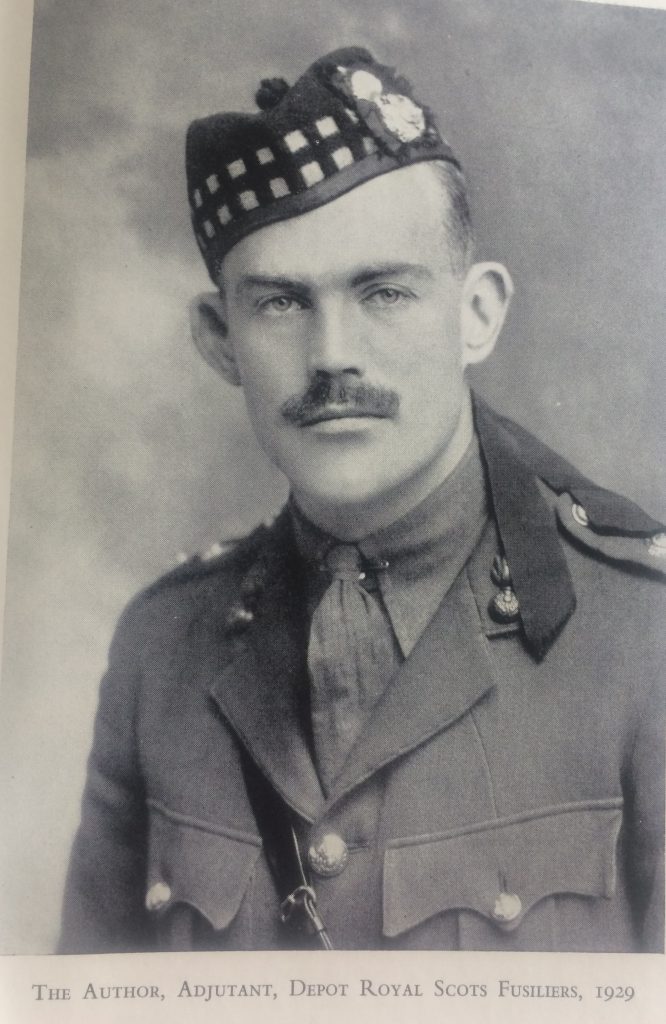Posts Tagged → history
Tucker Carlson’s interview with Putin
I have watched the fascinating interview with Russian dictator Vladimir Putin by journalist Tucker Carlson, and if you have any interest in world politics, you should watch it too, right here.
So the mainstream establishment politically partisan leftwing activist media, and their political members like Hillary Clinton, have all piled on Tucker Carlson for doing this interview. I don’t see why, except that the establishment media is jealous, or maybe afraid. Unlike the establishment media people, Tucker Carlson doesn’t ask softball questions or act like a fawning stooge.
He asked logical questions of Putin that visibly provoked Putin quite a few times. In fact, Tucker Carlson asked questions I would not necessarily have thought of, like if it is OK to carve up modern Ukraine among its former occupiers, as Putin stated, then is Putin advocating for giving northern Ukraine to Viktor Orban’s Hungary? Would Putin be ok with Poland taking a big piece of Ukraine, too?
Putin did not like those questions! He oh-so-very-clearly dislikes being challenged and is not used to it.
For his part, Putin was fascinating. He gave an impressive recitation of Eastern European history, beginning at the year 862, from memory. While I have studied the history of Europe a lot, I do not think I could give you all of the “who kicked Mary and who hit John” moments that make up the chaotic past and present of Eastern Europe, much less Western Europe, from memory.
One area that Putin was clearly not being truthful about was this “Denazification” of Ukraine justification-excuse for invading Ukraine. Yes, there were Nazi collaborators in World War II. There were also Ukrainian Communists in World War II. Russia also committed a genocide-by-forced-starvation against Ukraine, called the Holomodor, in great part in retaliation for atrocities committed by Ukrainians against Russians not too long before. There is indeed a long history of blood and feuds here.
Putin also stated that Poland collaborated with the Nazis in World War II. Yes, the same 1939 Poland that was invaded and crushed by the German Nazis, supposedly did it on purpose to help Germany. Despite the fact that it was the Soviet Russians who committed the Katyn Massacre of the Polish elite. Obviously Poland did not welcome or collaborate with the German Nazis, but Putin says they did, and moreover, that the Poles were themselves Nazis.
This is nonsense. It is not factual.
But, like I say, you have to hear this interview yourself to understand how the Russians really think, or at least how they want you to believe they think.
Whether or not Putin actually believes his own propaganda, it doesn’t matter. He says it, and to me it sounds crazy, but I will bet that a lot of other Russians believe the same things. Which is why these interviews and dialogues are so important. We humans should strive to understand one another. Or at least lie to each other, mutually. Some sort of understanding emerges, and if it prevents bloodshed, cruelty, and crying children and destroyed civilizations, then probably for the good.
Putin very clearly has a passion for the region and for Russia, which is to his credit. Because the one thing that has caught the fancy of a lot of Americans is that Putin loves his homeland Russia. If there is one thing that at least half of America admires it is an appreciation for one’s nation, and so Putin’s clear love of Mother Russia resonates with them.
Putin’s love of country, to the point of waging an illogical, incredibly destructive, and probably illegal invasion-war against Ukraine, is something we no longer see in America’s politicians. No, America’s politicians are largely fat globalists, citizens of the world, moral relativists who enter Congress worth fifty cents and who are then worth $29,000,000 three terms later. American politicians love money, not America, and they are allowing America to be invaded. American politicians are selling America to the highest bidders, most especially Joe Biden, whose literal name Joe Biden is all over illegal bribe and graft checks and money wires written by Chinese businessmen to him and his son Hunter Biden.
Putin doesn’t put up with traitors, which a lot of Americans find refreshing and wish would be the norm once again here in America.
Putin gave his perspective on his region’s history, which is obviously from his own view. I know for a fact that asking a Ukrainian citizen will result in a different view on a few of those same exact facts. Same goes for people from Poland, Lithuania, Finland and many other nations around there. For the past few hundred years at least, that big grizzly bear Russia has had its grip tightly on so many of its neighbors. And from the Russian perspective, this is normal and perfectly fine. If you are Kazakh, or Tajik, or some other ethnicity, you probably disagree with Russia’s actions.
One of the regions that Russia invaded and absolutely stomped to pieces in recent times, unarmed civilians and all, was Chechnya. Back before YouTube became all censorship oriented, you could watch actual video footage of Russian soldiers laughingly executing unarmed Chechen civilians in their ragged clothing, mothers and fathers, grandmas, and then walking on to the next rustic stone farmhouse and doing it all over again. I really defy anyone to try to justify this barbaric behavior. Same goes for Ukraine now.
And Putin complains that the CIA was responsible for Chechnya’s response…
Other items that fascinated me are Putin’s view on his experience squaring off against and sometimes trying to work with the CIA and American political leadership over the decades. He seems genuinely flummoxed why American leaders and bureaucrats alike do not trust Russia, even post-Soviet Russia. It is helpful to me to closely watch Putin’s face as he voices his disbelief, and his reluctant acceptance of realpolitik, over the proxy wars and NATO maneuvering along Russia’s borders.
Maybe he really does believe what he is saying.
Long ago, a friend of mine who taught Russian history and military doctrine at the US Army War College in Carlisle, PA, pointed out that over its long history Russia has never had democracy or representative government. Russian culture has always favored some sort of headman, dictator, Tsar, whatever, and so, believe it or not, today’s Russia with all of its obvious problems, and its journalists being thrown out of windows, is still relatively open and free compared to its history and its potential now and future.
In other words, as ruthless dictators go, Putin is not so bad. He could be a lot worse.
In any event, Tucker Carlson has done a good deed here. He sat down and had an honest-to-goodness real and very long interview with a head of state that no one in the American political-media establishment wants us to hear from.
You should ask Why the American political-media establishment wants us to be shut off from Putin’s perspective. Is it because so many American bureaucrats and politicians have been privately and very illegally benefiting from Ukraine’s oil and gas business, and from its illegal bioweapon labs set up at the behest of Dr. Mengele Fauci and American Big Pharma companies? These illegal relationships have been coming to light in the past few years, mostly now as a result of Russia’s invasion of Ukraine.
Watch the interview, and be thankful that a free America still exists in part, despite the Biden Regime’s best efforts to turn America into a violent police state, and freedom never being free and having to be occasionally renewed by the blood of patriots and tyrants alike.
UPDATE: Tucker Carlson goes food shopping in Moscow. Whoa.
Two great shows coming up soon!
Two great shows are coming up soon. If you live in central Pennsylvania, then fortunate you. If you live farther out or even far away, even out of state, both are worth traveling to, even from far, far away.
The first show starts this Friday, the 18th Century Artisan’s Faire, now (as of last year) held in Carlisle, PA, at the Carlisle Expo Center at 100 K Street. It used to be called the Lewisburg Show, because for decades it was held in Lewisburg, PA, along Route 15. The Carlisle Expo Center is SO MUCH BETTER than the prior hotel venue. I went to this show last year and could have easily spent both days there. Better lay-out, better room, more room, higher ceilings and far better lighting.
If you are afflicted with history-itis, with a passion for hand-made tools and utensils of all sorts, including eating utensils like forks and knives and plates, with blacksmithing and historic reenacting, with hand-carved curly maple furniture and gunstocks, leatherworking, with anything black powder or flintlock or percussion, with 17th and 18th century clothing, then this show is for you. I have been attending for I don’t know how many years, a long time, and every time I go it’s worth it. The nationwide talent that is assembled at this show is amazing to experience.
The second show starts this Saturday, the Great American Outdoor Show. It is held for the whole week in Harrisburg at the Farm Show Complex on Cameron Street. This is the “new” show built on the ashes of the old one, which I helped end by starting a boycott.
The prior show was run by a British promoter, and they had no feel for America, Americans, guns, gun rights etc. In the immediate political backwash of another Democrat-run mass school shooting, that British promoter tried to prohibit exhibitors from having AR-15 platform rifles. That set off a slight negative reaction among the paid participants, advertisers, and attendees that culminated in the boycott, which ended the show that year. And it ended that tone deaf promoter’s role in the show ever-after.
In the press interviews I did about shutting down that show, my favorite quote was “The British did not understand Americans in 1776, and they still don’t understand us in 2012.”
To which I think we can easily now add the entire Democrat Party, because it is openly and officially the political party of big government, of citizen disarmament and gun confiscation, of digital currency and your money control, of high taxes, of speech control, of thought control, of censorship, of car control, of health care control, of Covid lockdowns and private citizen movement control, but not USA border control.
Nope, under the Democrat Party the American border is wide freakin’ open to tens of millions of anyone and everyone from around the world.
So, go to these two shows. Both are very family friendly, regardless of what your family members each like. You will be really happy you did go. Enjoy America and freedom while you still can.
On Friday and Saturday you can rub elbows with gunpowder horn makers, flint knappers, flintlock and percussion rifle makers, black powder bag makers, historic dress and bonnet makers, tri-corner hat makers, and blacksmiths.
On Sunday you can go to the Farm Show Complex and see the whole world of tactical socks and vests, endless semiauto blast-em rifles as well as very cool historic lever action rifles and Wild West revolvers, bushcraft duck calls, high fence deer hunting legends and other TV created one-dimensional personalities, useful ATVs, fabulous boats, and cool end-of-the-world survival RVs, high tech synthetic and high tech wool outdoor boots and clothing, hunting guides from all around the world, and all kinds of fishing stuff. The Great American Outdoor Show really is an amazing experience. I highly recommend it.
I myself will be both a visitor and a volunteer at the GAOS. After many years of volunteering at the show and its predecessor, I took 2021-2023 off. This year I will be volunteering one or two days with the Pennsylvania Trappers Association, a wonderful conservation group of which I am a Life Member. Come on by the PTA booth and chat with us!
Career politicians ended representative democracy
At its founding, America was envisioned as a representative government, a constitutional republic, where We, The People would vote for good citizens from amongst our ranks to represent our interests in government. Guy leaves his farm and plow behind to do his civic duty, returns back to the farm four or six years later. It is a good idea, because it does away with unfair feudalism and hierarchy, where only a few people at the top have power and everyone else is a powerless serf/slave/peon with no individual rights. The people making the laws are the same people who will be subject to the same laws. Everyone is treated fairly under the law.
And for a long time America worked pretty well on this model. Yes, there have been some political scandals along the way, and some power grabs that were turned back. Typically the American citizenry have been jealous of their rights and understandably suspicious of government in every way, and so they “throw the bums out” when the collective situation gets bad.
But somewhere in the past sixty years, maybe eighty years, America got deeply into political careerism. You know, where elected officials Mary Jane and Billy Bob were so respected and maybe even revered, either for their honorable traits or for their ability to deliver taxpayer funds to private beneficiaries, that the voters routinely, even habitually vote for them at every election. And so these people who kept getting elected in primaries and in general elections became career politicians. Either their entire career or most of it was spent working their way up a sort of “ladder” from local positions of authority to national positions of authority. And thus did people aim to have a career in politics, because of all sorts of reasons, some good, some bad, some corrupt, but there developed an entire culture within the two main political parties, Democrat and Republican, where party bosses would work with special interest groups to line up tame candidates who owed their political career not to We, The People, but to the party bosses and special interest groups.
And career politicians began to get really rich from their relatively low-paying public jobs. All the more reason to just stay in there and not do anything else with your life!
And so here we are, mid 2023, and career politicians in both political parties are willfully destroying America (e.g. faux “debt ceiling” wild spending spree that no one can ever pay for, Department of Defense can’t track expenditures below $100,000,000 and so our tax dollars are wasted and stolen from us, $83 billion worth of American military hardware is abandoned to our enemies in Afghanistan by Biden, neither party will hold Rep. Adam Schiff accountable for being a serial liar needlessly costing taxpayers $32 million etc).
Because career politicians are so personally invested in their political careers that if they deviate and try to do the right thing, then they stand a good chance of losing their elected office. And then doing the wrong thing becomes accepted and then promoted by the various established information outlets.
And so career politicians continue to make one bad decision after another, to hold onto their own personal power. To the point where even when Americans lose, when America loses, career politicians still win.
And so we reach the present financially and culturally unsustainable points that will inevitably result in America failing, and everyone losing their individual rights, and then some feudal overlords take over and use brute force like everyone else around the world lives under.
I know, I know, so many readers here laugh out loud when I write this stuff.
“America destroyed! Unsustainable! Ha ha ha that Josh guy sure is an idiot, because he obviously doesn’t know America is waaay waaay too big to fail!”
And so despite a long human history littered with wrecked human civilizations, the warnings from taxpaying worker bees like me go not just unheeded, but mocked and belittled by career political staffers and career politicians in both parties as they all continue to make financially and culturally unsustainable and reckless decisions for the collective rest of us. And at the end of their day, all the careerists see is money and power, and so anyone within their orbit can commit the most grievously corrupt behavior without being held accountable. As one of my mentors Frank used to say, the longer a career politician is in office, the tighter the horse blinders get, until they see nothing except what is right in front of them, which is money and power.
The rest of us? The We, The People worker bees? We see the corrupt rot all around us eating away at America. We see Rome beginning to burn, while the career politicians feast and live carefree lives devoid of discipline or honesty. This is not going to last, friends. If we all continue to re-elect career politicians, then our freedom-loving civilization is probably going to end within the lifetimes of the people reading these words, and everything we take for granted will be gone. All of it. It will all be History, as they say.
Russia & Ukraine & the West a year later
A year later after Russia’s invasion of Ukraine, a few realties emerge.
1) Massive scale wars with massive landscape-scale complete smoking rubble destruction and muddy trenches did not end after World War One (“The War to End All Wars“), or World War Two. Now, our entire beautiful blue and green planet appears to be on the edge of World War Three, and the carnage in Ukraine that right now seems so unimaginable is just the beginning.
2) Russia may harbor grievances against Germany for two back-to-back invasions in the past hundred years, but there is no avoiding the fact now that Russia is the aggressor here with Ukraine. No one likes a bully, and Russia cannot reasonably claim to be any sort of a victim while behaving this badly. No, sorry, few people in Europe or America accept the silly notion that Russia is entitled to invade and subdue and rule with an iron fist every nation near it. It is not right and it should not continue.
3) As rotten as Russian dictator Vladimir Putin may be, there is no denying that he loves Russia and he believes in basic European/ Western values. Yes, it is easy to lose sight of the value of these facts in the face of so much Putin-led barbarism and destruction. But very few European/ Western leaders love their own countries; in fact most of them seem to be at war with their own countries and with their own countrymen, and the West is collapsing as a result. Isn’t it an oddity that of all places on Earth, Russia actually looks like one of the more stable places to live and raise a family?
4) Ukraine became America’s corrupt whore during the Obama administration, and Ukraine was being run by the Biden family when someone named Donald Trump came along in 2017 and shined a bright light on the disgusting mess. Hence all of the stops being pulled out by the corporate media and their Democrat Party masters to stop Trump at any cost, even the price of stealing the 2020 election and turning the American federal government against the American people. All of the fake Russiagate hoax, the Ukraine phone call hoax, the two fake impeachments, were to keep President Trump from digging into the really bad and illegal American corruption farming operation in Ukraine. And now, corrupt Joe Biden is dumping hundreds of billions of dollars into Ukraine to prop it up to keep his corrupt operation from being fully exposed.
5) Ukraine isn’t really about defending a small, innocent country from a big bully neighbor. It is mostly about American politicians hiding and protecting their political and financial equivalent of a “black ops” country from further scrutiny. At least this war did not start out this way. Like all wars, this war is becoming about other things now.
6) The other thing that the Ukraine war is becoming is a firmer and much more organized alliance between Russia, China, and Iran as they seek to destroy the West. For those of us who love America, freedom, lots of delicious food and beer and easy weekends and endless entertainment and fun fun fun after a hard work week, this emerging alliance aimed at our throat is a really big problem. But as much as the Russia-China-Iran challenge to the West is more visible and threatening, a huge proportion of Americans ignore it and still take America and their safety for granted, still have their heads in the sand, and still want to keep voting for people who are aggressively undermining America from within. A weak America is how Americans will suddenly lose everything they enjoy and take for granted right now.
This war in Ukraine and how Americans understand it is how empires and cultures end. No, America is not too big to fail. But our own nation’s failure is beginning to happen right in Ukraine.
And isn’t it strange that the American Left, which spent 100 years undermining the American military and our national security in the name of “peace” is now hell bent on starting World War Three?

Another past war in an obscure European nation, and more dead beautiful young men with grieving parents. The yellow caption on this is incorrect. See the more accurate description below. It is heart breaking.
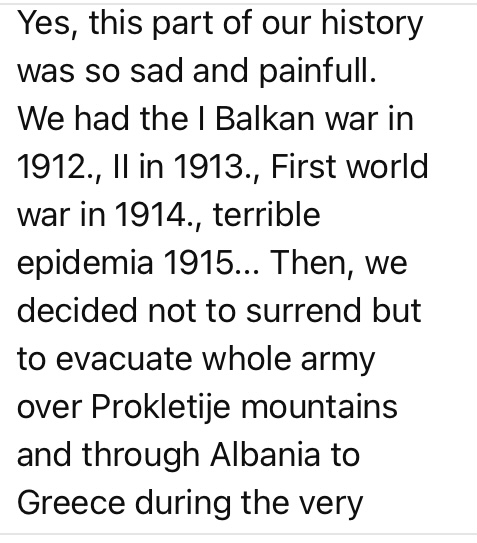
I dug around the Internet to find this bit of obscure history to help our own generation understand what is happening now in Ukraine. The parallels between 1912 Serbia (which became Yugoslavia) (does anyone today even remember that country?), the resulting World War I, and the current war in Ukraine are eerie as hell. History often repeats itself, but it doesn’t have to…
Beijing Biden’s Blitzkrieg on America, Day 14
For a corrupt, pedophile, senile, failed political establishment guy who in 47 years of office holding achieved nothing and was remarked only for his plagiarism and lies, not-my-president “Beijing” Joe Biden sure has accomplished a lot AGAINST American citizens in just 14 days.
All kinds of ruling by fiat – executive orders – a hallmark of dictators everywhere. The contents of these orders are so overwhelmingly against the rights and interests of everyday American citizens that it takes your breath away. And if anyone wondered why this flurry of activity is just the beginning of the left’s total insider assault on America, they can look no farther than the father of Biden’s actions, German Nazi Party leader Adolf Hitler.
Adolf Hitler conducted his takeover of Germany in almost exactly the same way Biden and his anti-America Left associates are doing it. Absolute Blitzkrieg, or “lightning attack” in German. It was designed then to shock and overwhelm the German political system, and later the military defenses of surrounding nations, so that Hitler’s Nazi Party could assume full and unchallenged control.
America’s political system has been a 245-year delicately woven arrangement of checks and balances that favor no one group or party holding all of the power. It has been set up as a shock absorber meant to take the bounces that democratic politics occasionally give to the body politic. What America’s system was not set up to do was to facilitate and insulate the complete and sudden illegal takeover of the entire political system by one group, and yet this is exactly what has happened.
Like Adolf Hitler and all of the Eastern European communists before and after him, Beijing Biden is moving ultra fast to solidify his iron grip over all aspects of American life. Bloggers and political activists are being hunted down across America right now by teams of rogue FBI agents, while the FBI HQ issues press releases attributing the resulting extrajudicial assassinations of these individuals to “child slave trafficking.” The mainstream media, which is now an official arm of Biden’s American Nazi Party, simply mouths the official narrative of these unconstitutional operations designed to shut down and silence free Americans. No one looks into the FBI’s low-credibility claims, because the enemies of Biden and the corrupt FBI are the enemies of the US media.
And like dictators all around the world, Biden’s ruling elites have suddenly surrounded themselves with armed guards and walls and fences in Washington DC, while simultaneously telling Americans that WE cannot have a wall around our nation, nor guns with which to defend ourselves. And Democrat Party officials like PA Lt Gov John Fetterman are telling us that challenging the 2020 election results is “not protected speech,” after four years of Democrat Party and establishment media lying every single day about Donald Trump being a Russian spy, and Ukraine hoax, and and and… This hypocrisy is the new standard for behavior from the Nazi Democrat Party.
Problem is, America voted for Donald Trump, not Beijing Biden, and while Biden has his foot on the gas pedal to accelerate his hostile takeover before real opposition can develop, tens of millions of patriotic, loyal Americans are waking up to the stark new very evil reality they face.
I have no crystal ball, and I can’t predict anything. There are a lot of ways Americans can resist the Democrat Party’s all-out assault on America, including retrenching at the state and local level. Most of this has yet to be explored, although some of it is beginning to take shape, like the creation of Second Amendment sanctuary cities, counties, and states. In effect, these places will become no-go zones for corrupt enforcers of the Biden Regime, like rogue FBI and ATF agents. One thing I can surely predict with 100% accuracy is that this gamble by the Democrat Party to establish itself as the full and complete rulers of America will eventually fail, badly.
You can vote yourself into socialism, but you have to shoot your way out, goes one quip. And so one way or another, the Democrat Party’s insider assault on America will eventually fail, but only after a great many innocent people suffer as a consequence. Just like in Germany, and Poland, and Czechoslovakia, and Hungary, and…and…and… the list goes on in human history, where dictatorial over-reach results in the citizenry eventually rising up and taking back their own authority. But it is the very nature of tyrants and dictators to ignore history, and to think that THIS time, they will rule absolutely and without challenge.
Eventually lightning plays itself out, the storm passes, and the sunshine penetrates the darkness. It is as inevitable as the sun rising every morning.
Quiet hero Jim Broussard moves on to next stage of being
Jim Broussard was one of those old school quiet, soft-spoken Southern gentlemen who could easily get by at a liberal cocktail party just because he was the nicest, most affable guy on Planet Earth. Unless you pressed him hard on politics, he would smile easily, laugh easily, tell some easy jokes, and make some subtly incisive social or political comments, and ask a lot of questions. But inside he was more than just quick political wit and analyst. He was probably my favorite guy in Harrisburg politics, and for a very long time he “sat in” for Dr. Krug at Charlie Gerow’s monthly public policy meetings downtown. Two weeks ago Jim left human life as we know it on Planet Earth, and if there is an afterlife, I am confident Jim is enjoying the best it has to offer. The man lived life to its fullest, left a huge footprint, without crossing any double yellow lines or cursing.
Jim and I first crossed paths at Charlie Gerow’s office, probably around 2009. He impressed me, which is difficult to do (observers of Josh know this, for better and for worse). He immediately asked me out for coffee, and ever after for a buck he would give the best political advice available around here. He sent the best Christmas holiday cards, because he used collectible stamps from decades past, and every card included genuine well wishes about things specific to the recipient’s life. Jim Broussard was a big positive force on Planet Earth, and I will miss him very much.
Below is the email his wife sent out, which includes his obituary, and then some photos I took of Jim over the years while holding forth at Gerow’s place:
From 1968 to 1970, Dr. Broussard performed his active-duty military service in the Army Adjutant General’s Corps at Fort Benjamin Harrison in Indianapolis, reaching the rank of captain. Subsequently, he served as a reserve officer in the Office of the Chief of Military History. He taught American history at Clarkson College of Technology, Southwest Texas State University (now Texas State), served as the historian of the Indiana state legislature, and returned to teaching at Ball State University and the University of Delaware. In 1983, he was appointed chairman of the history and political science department at Lebanon Valley College in Annville, PA. His publications include The Southern Federalists, 1800-1816, and Ronald Reagan, Champion of Conservatism, as well as scholarly articles and book reviews.
In the late 1970’s, Dr. Broussard began working to start an historical society focused on the early national period of American history, which he thought a neglected field. He founded the Society for the History of the Early American Republic (SHEAR), which is now a thriving and respected part of the historical profession. In recent years, he came to view political history also as a neglected field, and at the time of his death was engaged in establishing the Center for Political History, based at Lebanon Valley College.
In 1989, Pennsylvania Governor Robert Casey proposed a tax plan which required a constitutional amendment permitting different categories of people to be taxed at different rates. Dr. Broussard believed this would not only raise taxes but would do it in an unfair manner. He formed the group Citizens Against Higher Taxes (CAHT) and campaigned against the amendment across Pennsylvania. It was defeated by a margin of three to one, the biggest defeat of an amendment in the history of Pennsylvania.

Dr. Broussard listening to immediate past PA Governor Tom Corbett explain why he lost the 2014 election
Dr. Broussard was a member of the Lebanon Country Club, the Steitz Club, Phi Beta Kappa, and numerous historical societies. He is survived by his wife, Margaret; their son, David Broussard, and David’s wife, Sophie, and their children Elsa Rose and Samuel, of Atlanta; his brother, Thomas R. Broussard, of New York City; his sister, Nancy Leonard, of Kentucky; his sister, Dorothy Bell, of New Mexico; one niece and three nephews. Arrangements for services will be announced at a later date. In lieu of flowers, contributions may be made to the Center for Political History at Lebanon Valley College, Annville, PA.”
Our family’s best and favorite summer vacation route
When our kids were younger, say from ages seven and up, we would take them on an annual vacation through Upstate New York. The trip was devoted mostly to Revolutionary War history, but also to American frontier history, American Indian history, and natural history. All kinds of historic forts dot the Mohawk Valley, and in between these places are all kinds of incredible natural history places, like the Herkimer diamond mines in Middleville, Moss Island, and the Canajoharie River carved pool. Lots of places to fish at every stop and everywhere in between.
We always started at Fort Ontario in Oswego, NY, and working east we would end at Fort Ticonderoga on the New York/Vermont border. Since we started this trip the forts have all gotten better and better. Fort Ontario refurbished all of their cannons a few years ago. Fort Stanwix has been majorly upgraded and has regular re-enactments. And Fort Ticonderoga now has the biggest private cannon collection in America, so get your tickets to the night time cannon shoot.
The Mohawk River is now largely a canal, and from Oswego to Moss Island you can watch small pleasure boats that started in Florida being raised from lock to lock as they make their way to Lake Ontario, and then to the Ohio River and back down to New Orleans, where they will circle back through the Gulf of Mexico to Florida. Many of the boat owners will stand on the deck to make sure their boat does not bang into the walls of the locks, and they are happy to tell you all about their trip so far. A few years ago one guy told us how his wife had just left the boat and him, and had rented a car to drive home. By the time he expected to arrive back in Florida in the Fall, her things would be gone from their home and the divorce papers would be waiting for him on the dining room table. He actually seemed pretty cheerful about it and said he was still excited to complete the trip, even by himself. By the time he was done telling us this short story, his boat had gone from one end of the lock to the other and was about to start sailing up river.
Our kids had never heard such a thing in their lives, and it gave us plenty to talk about the rest of the trip.
So here is the Revolutionary War route that our family has taken many times over the years, often summer after summer. As our children gained age, they gained new abilities to comprehend and appreciate what they were seeing. Definitely start at Oswego, and do not miss Fort Stanwix. There are all kinds of places to stay each night as you make your way east. Most of them are inexpensive, and many are historic, the the old hotel in Rome, NY, which is actually pretty nice. We usually spend at least one night camping at the Herkimer KOA in Middleville, NY, where we will spend one day mining Herkimer diamonds and another day exploring Moss Island and the historic General Herkimer homestead, which has real cannons and lots of history.
The Oriskany Battlefield monument is one of those places you can’t believe no one talks about, and when you get there and learn and see what took place, you realize how the entire Revolutionary War’s outcome hinged on this one fierce battle between Mohawk Valley patriots and British Regulars, with Indians on both sides.
Moss Island is incredible; I won’t spill the beans and you have to go see for your self, but you absolutely have to go, wearing hiking boots or good trail sneakers. The little town there has a great ice cream store, and my kids always liked fishing under the bridge as well as at Moss Island.
The Canajoharie River has the carved rock pools you can wade in, which I do not identify on the map because I ran out of label room.
Saratoga Battlefield is where a certain famous and then infamous American general made his name. Fort Ticonderoga is AMAZING, and if you are able to get tickets to the night time cannon shoot from the ramparts, you will not be left unimpressed. Trip home to Central or eastern PA, or NYC/New Jersey, is via the NY Throughway south to any number of state routes and highways, depending on how much time you have. We usually do this trip in seven days, though it can be done in ten or even five. The Remington factory tour tickets should be secured beforehand. It is an incredible tour, or at least it was. I think we took it before OSHA stepped in and limited it. The museum there is excellent in and of itself.
Book Review: The Uneven Road, by Lord Belhaven
The Uneven Road (1955), by Lord Belhaven
I read this fascinating book twice, and I recommend you read it at least once. Heck, just the old black and white photos of mysterious holy cities, like al Q’ara, (taken with early hand-held cameras from a bi-plane in the 1920s and 1930s) and traditional Arab tribesmen, both even today far out of reach of Westerners, are worth the five or ten bucks it’ll cost you to buy it on eBay or Amazon. For just five bucks you can get one of these fascinating and educational books, and have a most enjoyable weekend reading, and learning. Find me another great, safe, healthy mind trip for five bucks, please.
Why review a book published in 1955, about the now dead Brutish Empire? What made the British Empire so grand, so great? Setting aside the natural feelings of those locals who were subject to British rule, for better and for worse, one cannot help but marvel at the remarkable discipline, planning, administrative organization the British brought to their empire. Any nation today would be well served to get one tenth that level of service from its own government.
And why would a book published in 1955 be interesting today? For one thing, history has a tendency to repeat itself, or to repeat versions of itself — things that happened in the past seem to happen all over again. If we who are living now can harness the lessons of the past, then we can avoid the mistakes of the past, too; or at least so goes the best thinking. Certainly one must know history in order to know what happened, and how to identify when the same forces are at work once again.
In order to understand where we are today, we must look at what decisions and resulting actions got us here, and why those choices were made (come to think of it, I recently read another similarly aged but highly useful book titled Why England Slept, written in the 1940s and 1950s, then authored and published in 1962 by some then-nobody named John F. Kennedy). The Uneven Road does an excellent job of explaining much of the Middle East and East Africa through one man’s colorful and risky exploits from a military and diplomatic hot seat along the Indian Ocean and the Red Sea, and then into the Italian Alps. Judging by current events, little has changed in the former.
As the title implies, the author took an uneven road in his long life, following completely neither his traditional Scottish upbringing nor his adopted British devotion to Empire. As he says in so many ways throughout the book, Lord Belhaven is a lot like his forebears, individualistic, strong, self-driven men who admired authority and convention as much as they bucked them and tried to fit into them on their own terms. Or one might say, Lord Belhaven and his ancestors tried to make convention in their own image. As an American, to me this independence streak is a highly laudable trait, even if it did damage to the already impressive careers of Belhaven and his father and grandfather.
The author is both very open-minded for his time, gleefully throwing off class and religious barriers that today seem so unbelievably feudal, especially to Americans (and familiar to those Americans who enjoyed the Downton Abbey series) with our hodge-podge zero-caste-system, but which were quite dominant in his early years. He is also representative of some persistent silly views that are also peculiar to certain groups of people where he is from, even today. To me, an American, whether I agree or not, this is all part of being a natural, well-rounded human being, and a sign of being interesting. Everyone has prejudices and sharp-edged opinions, and everyone is entitled to them. No one is perfect, our author does not claim to be perfect, nor does he engage in the vacuous virtue signaling which so sharply defines today’s Western civilization. More to the point, neither you nor I are anywhere near perfect or nearly as exciting as Lord Belhaven, and only very few people you or I have met or ever will meet are going to be nearly as interesting as Lord Belhaven.
Writing as a soldier, administrator, diplomat, lonely husband and then divorcee, and amateur historian/ethnologist/archaeologist, Belhaven is a gentleman, and also a manly man. He is the old archetypical British\Scottish aristocrat patriot, both swashbuckling and under steely self control, a thing of the past which, my gosh, we now could use much more of in our own time. He is clearly a warrior, and an effective one at that, and yet much of his book is stories about how he was not such a great warrior, or how he was charged with establishing peace in lawless places through diplomacy, and yet relied upon deadly warfare.
As he reminds us, especially with the burning of the village of Jol Madram, diplomacy without the real threat and the occasional implementation of brutal violence is simply indecisive inaction, a weakness that inevitably invites more lawlessness or aggression. For Belhaven, there is no foolish, circular “conflict resolution” without resolving the conflict to concrete terms he likes and which work for the most people. Instead of getting “triggered” and fainting into a safe space when confronted with adversity, Belhaven the man of action responds by putting his finger on the trigger of his revolver and explaining just how things are going to get back to full function, or else. In a Western world today of namby pamby political correctness and feminized men, reading this book I could not help but think How refreshing! And also, Where the hell did our masculinity go?
The author’s voice is forthright, unafraid, honest, and though a few times I may disagree with his views, I keep thinking as the pages are turned, “Now here is a man I could respect and like!” Would that Western Civilization today had many more men like Alex Hamilton, aka Lord Belhaven.
Spanning the 1920s through World War II, and published toward the end of the British Empire, The Uneven Road is one more fascinating on-the-ground report in a line of the “Hell, I was there” genre of personal adventure histories written by British military and political officers across the British Empire, upon which the sun did not truly set until the 1960s. The Uneven Road is one of the last from the frontier, and in my experience it is one of the better written and certainly the most personally reflective. In some ways it is a companion piece (maybe even a necessity) to books written by or about others who traveled, explored, dug archaeological treasures, politicked, and fought in and around the Arab Peninsula, such as Lawrence, Philby, Ingrams, Jacobs, and others.
There are many, many examples of these personal field reports and histories from the 1790s through the 1960s. Some are famous, most are obscure, some are kind of boring, and many carry an overt agenda, and yet almost all are illuminating about life among the British Empire’s boots-on-the-ground administrators and soldiers, as well as the occasionally momentous political events of the day. The fact that these personal histories exist at all, and that they are often well written, says a lot about the high caliber of the British and Scots of that time, both the writers abroad and the readership waiting back home. The Uneven Road meets or exceeds all these standards.
While other major cultural “encounters” and confrontations have been largely or absolutely settled in the same time period, in key ways that are of great interest to the modern reader, this book is about East-meets-West, a contest that has only grown sharper and more defined a full hundred-plus years after it fully got under way, as described in these pages.
Britain: A Culture of Selfless Patriotic Duty
One need not read a book to hear or know about England’s long established culture of patriotic duty and self sacrifice for king and country, but reading this book will help the interested reader gain real appreciation for both the depth of feeling most Britons had then, and for the real personal cost it then meant later on in their lives. The unbelievable battlefield losses in World War One and WW II greatly changed England’s culture, resulting in a legacy of pacifism, fear of inevitable conflict, and self-defeat we see officially operating today.
Throughout the first half of his fine book, Belhaven off and on artfully weaves an analysis full of personal anecdotes of British military culture, including how wealthy aristocracy would often take a vow of poverty (as opposed to running a family business or a valuable property) to serve in the military, for the simple satisfaction of providing patriotic service to the nation. The following quote only touches on this, but it covers enough other turf to qualify for mention here:
“One Saturday, towards the end of our last term at Sandhurst, Tony Keogh and I were both excused [from] work because of minor injuries. Tony Keogh was a dour Wellingtonian, whose ambition was to give a lifetime’s service to Waziristan on the northwest frontier of India, a country which his father had been the first to survey.” (page 40)
Waziristan of the 1920s is today several different ‘stans, including parts of Pakistan and Afghanistan. It included then as it does now all of the intolerant, violent religious fanatics who still make it such a special place. From the 1880s through the 1940s, British troop losses there were big. Can you imagine being the first person to scientifically survey a significant portion of the planet, this very rugged, remote place specifically, surrounded by such danger? And then bear a son who simply wants to pick right up where you left off? Such was the tough, brave stuff the British were made of, once.
<sigh>
And it was that same patriotic fervor and absolute selfless commitment that made such brave soldiers for World War I and then World War II, and then resulted in the pacifism of modern Britain, when few men returned home:
“Toll for the brave!” that most perfect of slow marches – how often had we marched to its slow, sharp rhythm. When I hear the tune now I can see, as I saw then, the high, shining fence of bayonets, the straight, erect lines moving forward with irresistible menace and force, the very symbol and image of war. And all with its glint of youth unafraid, unconquerable. Toll for the brave indeed; few who marched that day have pottered on as I have done for fifty years.” (Page 40)
<sigh>
His description of his surprise at winning the Sword of Honour at Sandhurst is both funny, and then sad, as his stiff-upper-lip military father refuses to acknowledge it until two years afterward, and only then sarcastically. That sword becomes a snapshot of his challenged relationship with his father and also a symbol of British culture.
Report from the Frontier: “It was impossible to be bored in Aden”
If India and Africa provided the greatest quantity of opportunity and adventure (the British defeat of France’s fleet at the Nile, the ‘Mountains of the Moon’ search by naturalist-explorers Burton and Speke for the source of the Nile, the Mahdi, the Zulu Wars, Islandlwana, Rorke’s Drift, the Boer Wars, and so on) for these far-flung representatives of Her Majesty’s Service, it was the Near East and Middle East that created the most vivid and gripping images consumed widely by the public, even today.
Think of “Lawrence of Arabia” and all the thrilling weight that phrase still carries a hundred years later. And so just a decade-plus after a charismatic young Brit, T.E. Lawrence, led the Arab revolt against Ottoman Turk rule throughout the Near and Middle East, it is primarily on and around the Arabian Peninsula that Lord Belhaven’s book takes us. It is an often militarized and occasionally one-man-army journey by foot, camel, horse, donkey, bi-plane, and boats of various type and size, including some pleasure craft of his own construction.
Based in Aden and sallying forth through abandoned ruins from hidden, unknown, lost civilizations to high mountain forts inhabited by fierce tribes, Belhaven fearlessly and luckily does his best to bring order to the fractured tribal chaos of the southern tip of the Arabian Peninsula, what today is known as Yemen and known then as the British Protectorate of Aden. Like most Brits of his time, Belhaven was an Arabist, an Arabophile who simply looked past the stark differences of Mohammedanism compared to his own culture of gentle mercy and forgiveness, stricken as he so clearly was by exotic Arab ways. His gunfights, in which he was sometimes greatly outnumbered, the aerial bombings, and his knife-edge nose-to-nose confrontations with cutthroat highway gangs and treacherous tribes are the stuff of legend; his fishing and hunting trips during working hours are not, though he does describe them in obvious joy and often at his own expense.
Though in a serious tone Belhaven opens up about his family life in the first third of the book, in the rest he makes it clear that he knew how to have fun and push British foreign office sensibilities beyond their traditional staid demeanor.
Belhaven gets extra credit for a dry wit and self-deprecating humor applied from several miles up. He does not take himself too seriously, or even seriously at all, at times, even as the bullets are flying and his life hangs by a thread. This bon vivant tone heartily leavens the serious life-and-death situations he describes, including shooting himself in the foot in the heat of battle, and nearly shooting his Somali hunting guide who chases a large leopard out of a cave and into Belhaven’s face, not to mention his rear line and front line experiences in World War Two.
One of the artifacts of time and place is the author’s fascination with genetics, a hot (and also destructive) topic of that era. Repeatedly marveling at the “pure” inbreeding of certain tribes along the southern Arabian Peninsula, the author relied upon simplistic, romantic, and plainly incorrect notions of genetics. But this is to be chalked up to the general and long lasting British awe and love for the colorfully fierce Arab nomads of that region. Whatever they did, no matter how backwards or weird, was very cool. Who can blame him for thinking thus? Were you or I to live out there today, we would find it just as alien and compelling as he did, and it would all be just as cool now as then.
Insights into his own family struggles with intimacy and finances, and the perhaps unrealistic lifestyle expectations accompanying title, are illuminating for those wondering how the famous British aristocracy slowly crumbled from the inside and out.
When it comes to archaeology, what is not mentioned is louder than what he might have written. Lord Belhaven apparently had an eye for long lost antiquities easily unearthed with the toe of a boot in the loose sand of some long lost civilization in the middle of the blistering desert. In a tempestuous sea of worldwide archaeological looting by British nobles, scientists and adventurers, Belhaven’s personal interest in a few old broken, abandoned things lying in the dirt was strangely singled out for criticism by a couple of bespectacled Peabody types in imperial administration back home. Belhaven makes no mention of any of this in his book, and maintains his focus on big picture civilizational development. As he should, in the tradition of the fighting naturalist-archaeologist hero; a kind of Indiana Jones.
Detailed references to carved alabaster amid the sands, and marble ruins, lost cities, dams, water works also occasionally appearing and then disappearing amidst the shifting sand dunes add an element of authentic mystery that is harnessed in the Indiana Jones and The Mummy movies. Except that Belhaven was actually there, and saw and explored those ancient mysteries with his own eyes.
Will a couple of “Aw, shucks” ruin all the “Atta Boys” in this book?
Though he does not explicitly set out to do so, the author’s plainly spoken recollections invite the reader to share the author’s unspoken pangs of loss over decreasing British influence and culture.
In 1955 the author was in good company, with his views on race (a word he uses many times with several different meanings), skin color, religion, and social class, even as he was clearly departing from those long-held views. Bigotry and class snobbery were then becoming a thing of the distant past, a change which Belhaven mostly embraces and in many ways led in his own “black sheep” personal way. Those anachronisms particular to that time period he retains were either common figures of speech, cultural crutches, or concrete functions of Caucasian minority survival in otherwise hostile foreign places.
We today may not agree with him or his use of some words, but he usually explains himself well, and so we can often understand his thinking. Understand is the key word here, and it does not mean or infer acceptance or approval. And if the reader wonders why I, myself, am insufficient in my condemnations of the author’s few lapses, may I suggest one consider the word “tolerance,” or the phrase “open minded,” or that almost extinct word “understand.” In other words, that was then, this is now, these are different times than then, and once again, everyone has opinions and views that others find “offensive” or uncomfortable. Get over it, get over yourself, learn to tolerate differences in opinion, and move on. I did, and you can, too.
In an educated and open society such as ours, everyone is entitled to an opinion, even a wrong opinion, and even a bad one. God knows, today’s self-righteous book-burning censors falsely accusing everyone else of political heresy and racism have plenty of bad and wrong opinions themselves. In the past, people have been and should continue to be able to disagree with one another without taking silly offense at the simplest of differences, and then retreating to corners and brandishing the war colors. Goodness gracious, people, put away the guillotines! Give people some space to be wrong, or to explain why they thought they were right. And that maturity is what a reader must bring with them to get the most on this trip through time.
For example, in a book full of many humorous and comical stories, anecdotes and quick turns of phrases, there are a couple references to race and genetics, captured so perfectly in The Uneven Road, that really shine a light onto the important evolutionary changes of thinking and attitude about race and skin color happening in the pivotal 1950s. Recall that Belhaven is a born aristocrat:
“I found the whole subject of breeding, as it was accounted in our curious society, absurd; if a man married the crossing-sweeper’s daughter, no one bothered to find out about her breeding; her father’s trade was enough to condemn the match. When it was discovered that he was a rich Jew, who swept crossings through eccentricity, opposition could be relaxed, particularly if he kept race-horses and was a member of the Carlton.” (P. 29)
One page later Belhaven hilariously describes how his Eton school class failed a basic introductory genetics course on mice, with the best and wildly cheered answer to the teacher’s question being a boy’s half-assertion-half-question that inbreeding causes parents to eat their young.
Fast forward sixteen years and Belhaven, now working as a British Political Agent in the Arabian Peninsula, writes: “I have sat in their gathering of Princes, in their Chief’s lamp-lit reception-room and watched them, their skins shining like polished gun metal in war-paint of oil and indigo, a dull sheen of gold and silver in their great daggers, curved with the curve of the moon; the remnant of a great nation indeed, virile, unconquered by arms or by time, handsome and courageous. And marvelling, I have remembered that these men among whom I sat married always, by long custom amounting almost to law, among their own family; so through the millennia they have achieved an extraordinary purity of breeding…for a period of five thousand years…” (P. 86, emphasis added)
And so, as much as Belhaven mocked his fellow students on their failure to grasp the essentials of healthy, necessary genetic diversity among mice and humans, he then later includes himself in their unfortunate company by endorsing the worst sort of human inbreeding, still going on even today in the Arabian Peninsula. This is the intellectual price one might pay for getting emotionally involved with something, as did Belhaven and all of his fellow Arabists. However, it remains fact that none in that time could have remotely foreseen that a surprisingly large number of parents across the Middle East would today encourage their own children to engage in suicide bombings and attacks. Talk about parents eating their young…
Just coming out of the real, actual Lawrence of Arabia time, an amazing time of high military and political adventure, and his living and working in that exact location with many of the same people, Belhaven’s near infatuation with all things Arab and Islam were then and are now understandable. His views on the Middle East were widely shared among his fellow Brits and Scots at that time. Even today many British still cling to detached, romantic notions of Arabia and Sharia-compliant beheadings and stonings, though having now painfully absorbed nearly half of the Arab world into London and having watched the other half wage sadistic war amongst themselves at home, and against Western Civilization abroad, has been shifting those old romantic notions into some other cold, hard, realizations.
Similarly, his views on Jews and Judaism range from the ground-breaking class acceptance (done with excellent humor at the expense of his fellow Brits; see above) to the old traditional British snobby disdain. He was only a little less tough on the Church of England. One must wonder what Belhaven would have written had he lived to see most American Jews and the Church of England and the current Pope all almost wholeheartedly embrace Marxism and anti-Western anarchy. If there is a resurrection of the dead, I want to be right beside Belhaven, so I can be the first to hear his colorful, insightful reaction to these unfortunate, really unbelievable facts.
One thing Belhaven did not live to see was the now-modern state of Israel, the then-nascent version of which he refuses to name in his book, but which he negatively alludes to several times. This is the old fashioned British Arabist coming through. Of the Jews of Yemen he has a brief but historically important and also humorous first hand encounter and report; but he then fails to mention their subsequent unjust inclusion among the nearly one million innocent Jewish refugees ethnically cleansed by his cool Arab friends from their ancient, very pre-Islamic communities across North Africa, the Near East, and the Middle East.
“So we came near to the end of our stay in Sa’na. Champion [Sir Reginald Champion, then Civil Secretary to Aden and later its Governor] and I called on the head of the large Jewish community in the city. Although considered by the Arabs to be an inferior race, the Jews of the Yemen were well treated by the Imam [Imam Yehia, a Shia leader who later lost the Arabian Peninsula to the Wahhabi al-Saud family, and whose spiritual descendants today are the once-again rebellious Hauthis]…Now there are no Jews left, they have all gone to Palestine, a Promised Land without either the milk of human kindness or the honey of their expectations…” (P. 104)
Hello, Lord Belhaven, reality is calling now, just as it did in 1955. The Yemenite Jews did not just casually get up and leave their homes in Yemen of 2,000 years for Israel out of a desire for better falafel or flush toilets; they were universally axe murdered and driven out of their homes by the same Muslims you so admire, the lucky survivors arriving in Israel with the shirts on their backs, their family homes and businesses stolen and occupied, their bank accounts looted, their personal property removed by force, like all the other Jews from every other Arab country at the same time. So why Belhaven ignores these facts to get in some shots on Israel is, again, likely a question of the impact of that romantic infatuation with remote alien cultures. Were he alive today, he would probably be a Christian Zionist like another famous and contemporaneous British Arabist, Col. Meinertzhagen (who when introduced in private to Adolf Hitler responded to the perfunctory ‘Heil Hitler‘ with his own ‘Heil Meinertzhagen‘).
Did Belhaven write some occasionally harsh stuff? Maybe so, certainly by today’s standards. But so what. Get over it. On balance, this book is 99.999% fascinating, illuminating, educational, and important history. Why judge and then dismiss the entire work based on a couple anachronisms from his own day?
As briefly mentioned above, one of the big challenges our younger generations are failing at is their tendency to immediately be offended by, and then harshly judge and dismiss, older generations by applying current standards. Instead of trying to understand how the previous generations thought, and why they fought way back when. Surely there must have been compelling reasons for the many momentous decisions that were made and then chiseled into stone or cast in bronze. Not everything back then is “racist,” which has become as hollow a crutch word as can be found. As old statues, symbols from important self-inflicted internal wars across America, are pulled down by screaming, infantile, anti-history mobs, one cannot help but wonder if the screamers will ever be interested in why the statue was erected in the first place. Or do they aim to simply re-write history (irrespective of the actual facts, causes and effects) to suit whatever political purpose suits them at some future time? I would rather have Belhaven’s honest accounting than a dishonest re-writing of who we are and how we got here.
In sum, whatever “Aw, shucks” Belhaven may have earned in a few spots here or there, they are far outweighed by the many “Atta Boys” he racks up over and over throughout this excellent book. For those younger folks who are actually and truly interested in understanding history, and how people’s views on race, religion, and income\ social standing changed over time in Britain and America, and how the Arabian Peninsula yet remains completely unchanged, The Uneven Road is a refreshingly honest and educational Exhibit A at the crucial time of the post-war 1950s.
Obscurity often means fascinating
Many years ago, in the late 1980s and early 1990s, when it was an actual newspaper that reported much actual news, instead of having the entire paper be one editorial after another masquerading as news, which it does today, the New York Times published a series of articles based on the simple methodology of having a news reporter (another extinct species the younger generations have never seen) open the New York City phone book (‘And what, too, is that?’ the younger generations ask) and randomly place his or her finger on the page. This was done ten times over the course of a bit over a year, as I recall. Whoever’s name was there over the finger nail got a call from the finger’s news reporter, who then did a detailed report on that person’s life. As the subsequent reports showed, despite living almost entirely quietly and privately in the big anonymous city, each and every one of those randomly selected people had nonetheless led a fascinating and often deeply compelling life.
And so, here now we have similarly plucked out of historical obscurity a book long out of print and probably originally of interest to few beyond aging British soldiers and Foreign Service dignitaries. Yes, here in Lord Belhaven we have a man whom very few have heard of, and as he is an aristocrat he is presently out of favor for having violated some social construct or…thing, even though he was a reflective, self-deprecating, risk taking and self-sacrificing humble public servant who enjoyed breaking with his own social norms and elevating many downtrodden. His life was more than fascinating, it was bigger than life, as we say. It was certainly bigger than my life or anyone else’s life I know of, and I know some pretty adventurous people in military and law enforcement, as well as international hunters. And today outside of Britain and America’s special forces operating abroad, very few public officials do anything close to what Belhaven did. And given the opportunity, few today would take it. Pity.
It was people like Lord Belhaven who put the “great” in Great Britain. Given how far and wide Hollywood looks for true-to-life stories, why no one has done a movie based on this book or on Belhaven’s life is one of those mysteries that highlights how shallow Hollywood is. Because it is true that Indiana Jones was mere Hollywood fiction, whereas Lord Belhaven was for real.
Movie review: “White Tiger”
When we think of Russia today and now, our mind might wander off into brutal poisonings of ex-spies across international borders, brutal assassinations of journalists inside Russia, brutal repressions of Chechen independence movements, brutal invasions of South Ossetia, Ukraine, and Georgia (THAT Georgia, not our Georgia), poorly chosen relationships with Iran and Syria, and the current czar riding around bare-chested on a horse with a rifle slung over his back.
Perhaps it was always thus. But if we think and search back a hundred years or more, we will stumble upon buried treasure in the farthest reaches of Russia.
Yes, it is true, Russia was not always just a military force to be reckoned with, it was also a significant cultural center of the very highest magnitude, the very highest achievement. World class music, literature, arts and crafts, poetry, ballet, and so on all were major hallmarks of the Russians.
Not of the oppressed Soviet satellite states, but the actual Russian people themselves.
Rachmaninoff, Dostoyesky, Faberge, and so on, so many great minds contributing in a singularly unique way, native to Russian culture.
Russians had this knack for art that you would not necessarily see if you looked at the simple surface of their culture or landscape. Behind the eightball on technology, Russian writers and poets and musicians bedazzled Westerners with their brilliance and inspiration.
That all started to die in fits and starts after the violent 1917 revolution led by the Democrat Party of that day and place, but nonetheless art persisted until the 1950s, when Soviet socialist control firmly held every thing and every person in its crushing grasp.
To dissent from all that big government with a pink pussy hat or with a snarky hashtag was unthinkable. Not that people wouldn’t try to do it, but the Soviet thought police, much the same as our own politically correct thought police in America today, would catch the thought crime even before it had taken physical form, and, as our own thought police openly wish they could do, WHOOSH, off to a starvation diet in Siberia went that ‘evil’ free thinker.
I am not sure that the Soviets used the words “sexist,” “racist,” homophobe,” “Islamophobe,” and other overdone American generalities meant to crush dialogue and debate, but if they could have used these terms, they would have. Different words then, but the same anti-democracy process then and now.
So for the past seventy years Russia has had an especially harsh Russian winter, art-wise, because of the Soviets and then their control freak successors, whatever Mr. Putin’s political party is named.
To be an artist in that Russian cultural winter was to walk around every day muzzled, daring not to say much less think your own creative thoughts. Too much was at stake.
But somewhere, somehow, that beautiful old Russian voice began to quietly break through the repressive walls. Finding acceptable subjects and means to convey them became a new form of creativity in and of itself.
Nationalism, patriotism, history are all legitimate subjects of artistic creativity, and so Russian artists have adapted. Very, very well. Albeit with throwback Soviet-style imagery, which is lamentable. Gosh, if the Russians could only be our friends…the things we could achieve together.
And so here we now have a truly artistic Russian movie we can all be proud of, in the mould of the old-time Russian artistic capacity. It is called White Tiger and debuted about 18 months ago. I have been wanting to write about it since watching it back then, but as we know, the past 18 months in America have been pretty intense. Every time I thought I could breathe again, some new issue would pop up. There was more compelling competition for writing space and creativity of my own.
At least this is how I have experienced the past 18 months.
If you are afflicted with a love of liberty, as I am, then you have shared my somewhat anxious condition as the American “deep state,” or Obama holdovers, or career bureaucrats, or whatever you want to call them, have attempted to reverse the outcome of a presidential election they thought they would win and still cannot stomach the thought of losing, by any means necessary. Which means illegal, unethical, immoral, un-American, anti-democratic means.
That all seems to be unwinding now.
And so now, for this moment, I get to bask in the glow of art, thanks to the Russians. And I really mean it, thank you. Seeing this movie took me way back in time to when my own mind was creative and artistic.
Dear Russians, I lift my glass to you: Tvoye zdorovye!
White Tiger is on its face a war movie set in World War Two. It is about Russians versus Germans, good guys versus bad guys, the Eastern European version of cowboys versus Indians. It is also about tanks and heavy armor, about technological superiority versus the grass roots spirit to survive, and history. Lots of history. And lots of action.
At its core, this movie is mythological and Darwinian, with a lot of symbolism, not the least of which is the theme music, an artfully done refrain of Wagner’s pilgrim’s chorus.
If you care to pay careful attention, and walk a mile in a Russian tank tread, you will end up being impressed by this low-budget, high-performance film.
Briefly summed up with no spoilers, the unlikely (and yet so likely…there’s that symbolism thing) Russian hero is reborn, a plausible enough biological fluke consistent with species adapting.
He goes on to learn his enemy’s ways, to anticipate his next moves, and in the end, he goes on a ghostly chase into both past and future, bound up in one of Russia’s most enduring identities: Not German!
And speaking of German, Germany, and World War Two, no better representation of Adolf Hitler has been captured in cinema than the movie’s very last few minutes, where Satan’s boots on the ground has a heartfelt confession with his sponsor, who sits patiently listening in the shadow.
And as an aperitif, try this Russian music to settle your soul before bed time.
